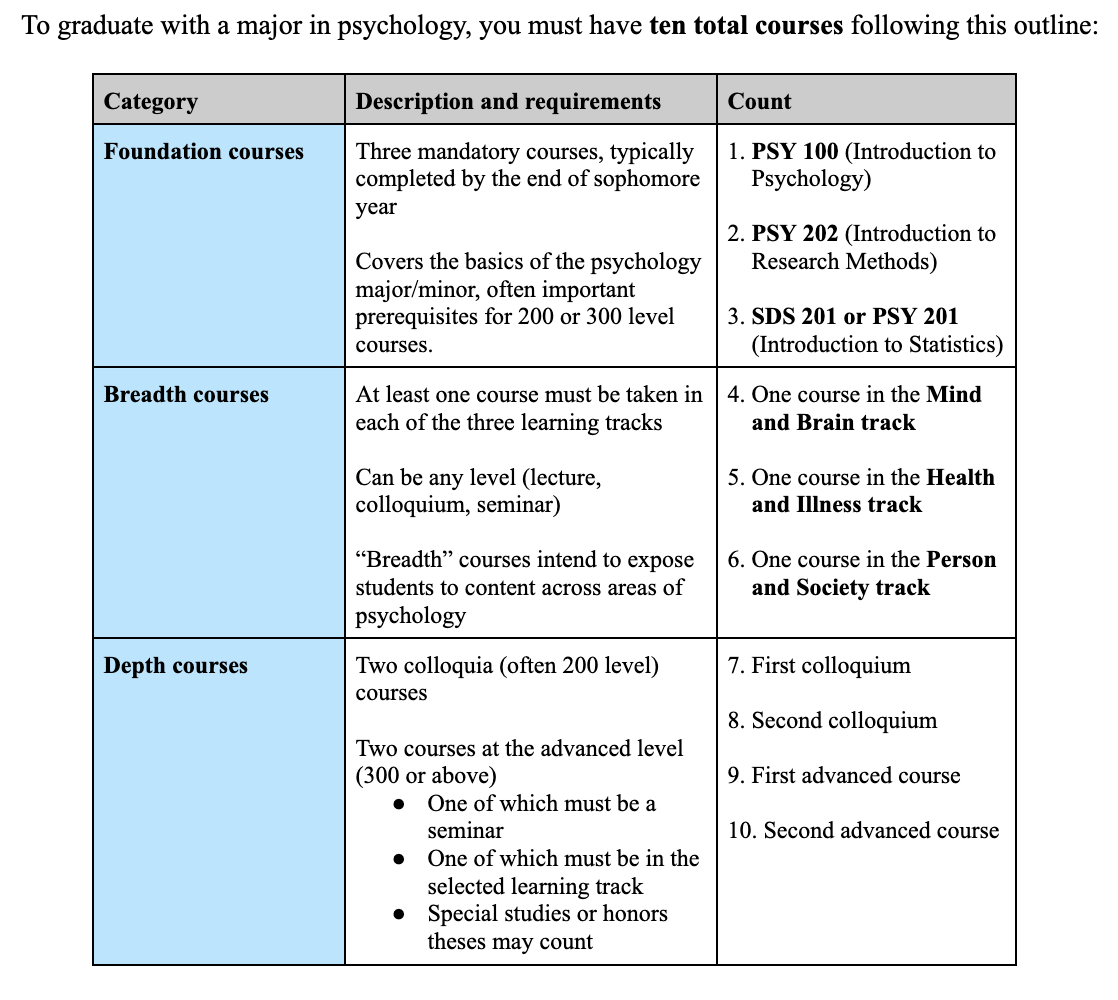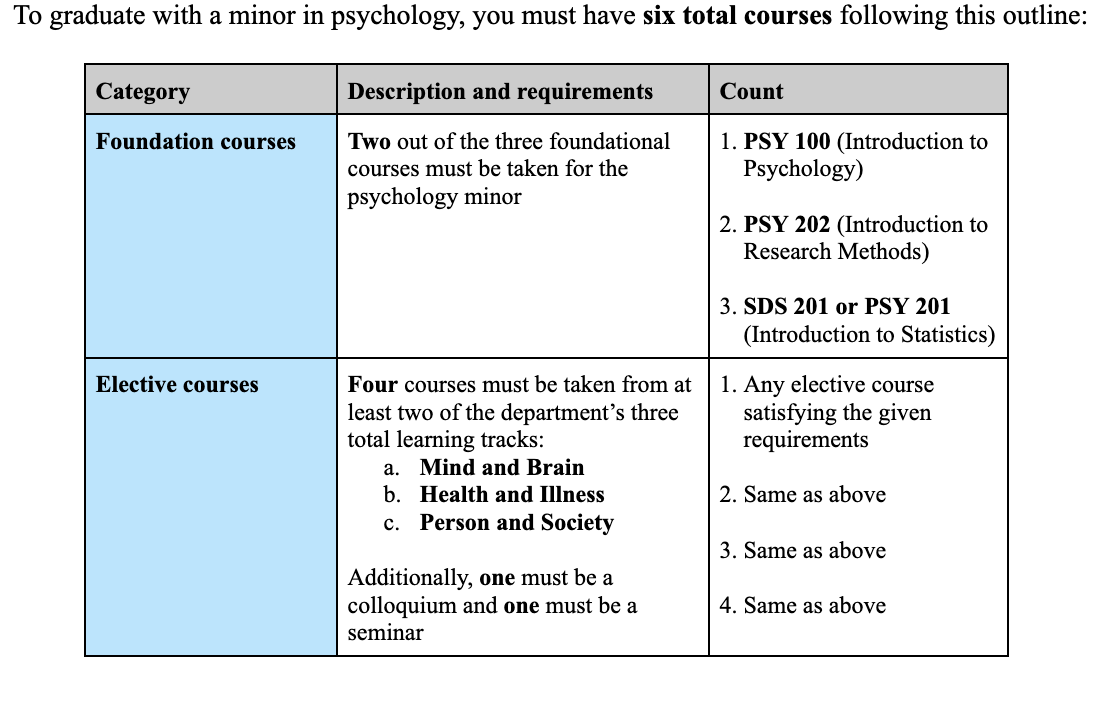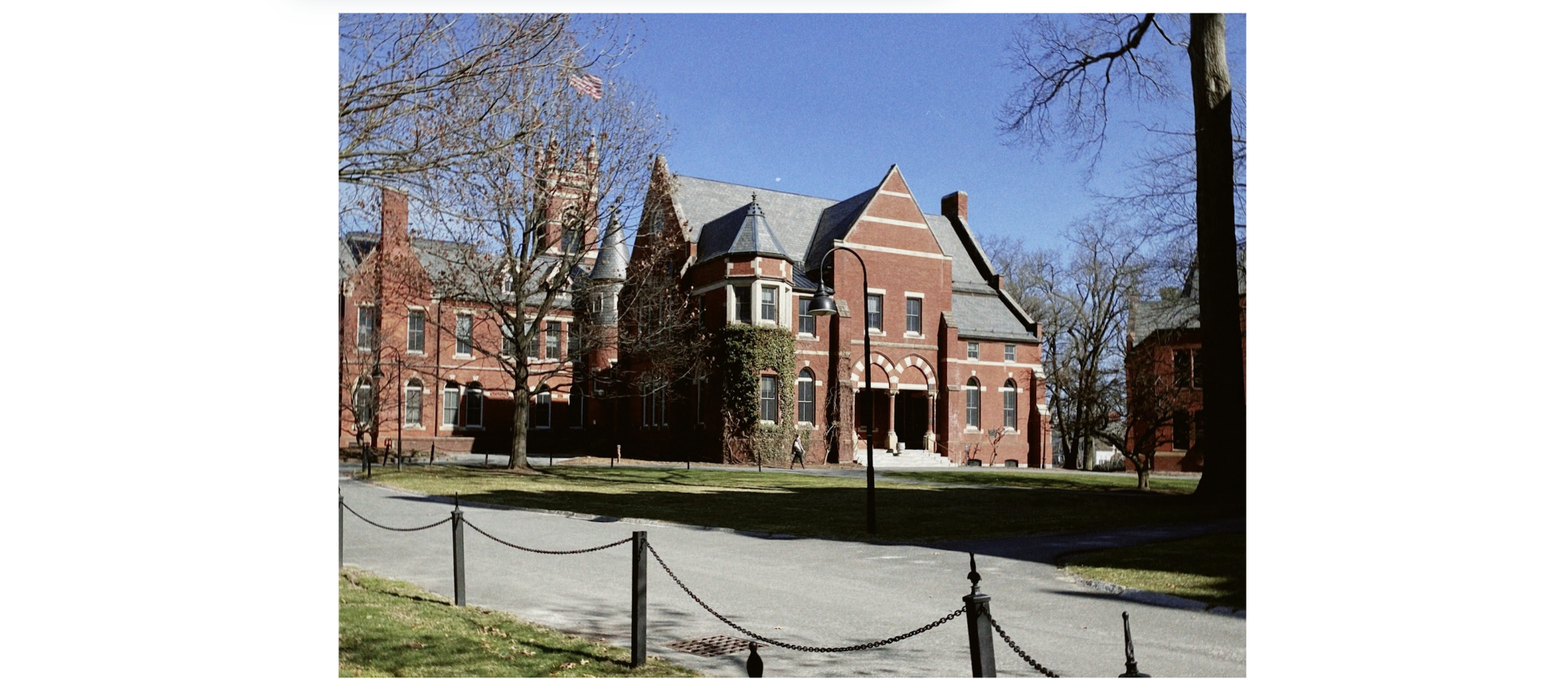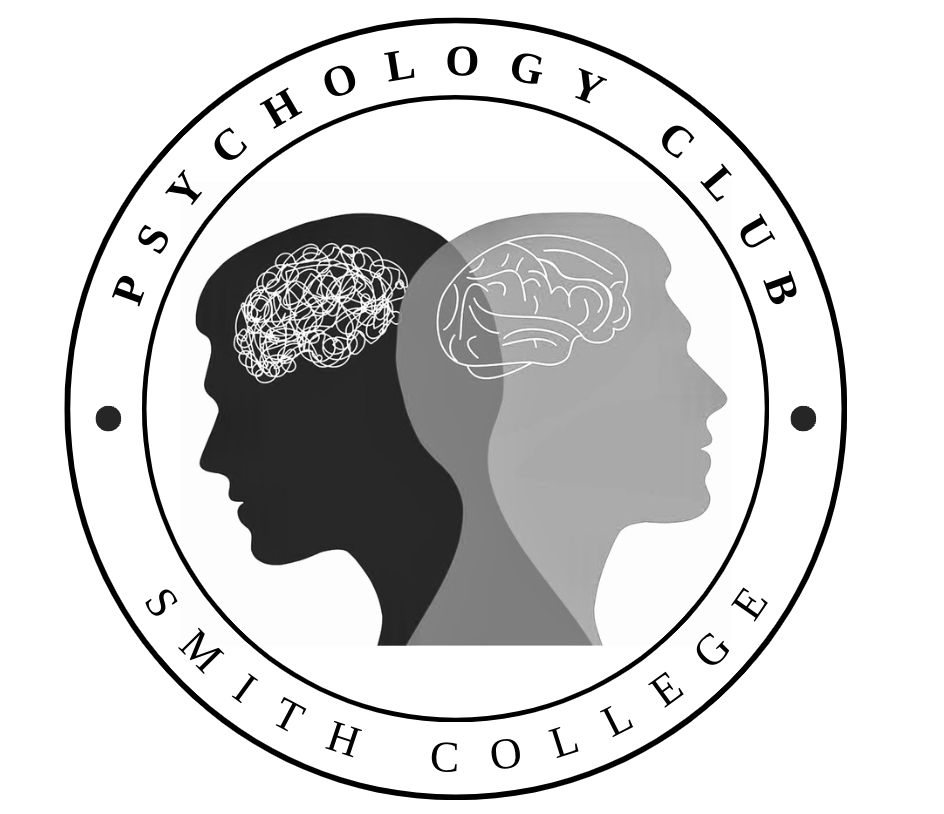Academics
This page contains information about the psychology department at Smith College and general academic resources for psychology students.

Psychology at Smith College
Three learning tracks
The psychology curriculum is organized around the following tracks of study:
- Mind and Brain
- Cognitive Psychology
- Neuropsychology
- Cognitive Neuroscience
- Health and Illness
- Clinical Psychology
- Health Psychology
- Person and Society
- Personality Psychology
- Social Psychology
- Developmental Psychology (technically spans all 3 tracks)

Psychology major requirements

Psychology minor requirements

How to declare a major/minor
There are two primary ways to declare:
- Ask one of your Psychology instructors to be your adviser
- Some professors may be at advisee capacity and unable to take you on at that time. Don’t be intimidated to ask and don’t take it personally if they say no!
- Contact the Psychology Department Assistant Laura Fountain-Cincotta (lfountaincincotta@smith.edu) asking to be paired with an adviser

Broadening your horizons: Other paths of study
Many students find that the psychology major is enhanced by learning in other departments, whether it be through taking other courses, declaring a minor, or declaring a second major.
Common departments often paired with psychology:
- Statistical and Data Science
- Major in SDS
- Major in Mathematical Statistics
- Minor in SDS
- Minor in Applied Statistics
- Education and Child Study
- Major in EDC
- Minor in EDC
- Computer Science
- Major in CSC
- Minor in CSC
- Neuroscience
- Major in Neuroscience
- Minor in Neuroscience
And many more!
Special Studies in Psychology
A special studies is a course you design with a Smith for 5c faculty member and is open by instructor permission. Special studies are typically 2-4 credits in one semester. Students usually pursue these credits after taking a course with a faculty member and finding that they are interested in exploring more about a particular topic. Some students may complete a special studies as part of an ongoing research project with a faculty member.
Honors Thesis in Psychology
The departmental honors thesis is for senior psychology majors interested in conducting independent research on a particular topic. Honors students work closely with a faculty member to conceptualize, design, and conduct an empirical research project.
Please note: faculty members from outside the Smith Psychology department are not eligible to serve as thesis advisers; the principal adviser of a psychology honors thesis must be a Smith Psychology Department faculty member.
The project culminates in a paper that is equivalent to a publishable journal article in quality and length (i.e., about 30-50 pages of text and written in APA style). At the end of the academic year, Honors students present their projects to the department as a whole. Successful completion of an Honors thesis leads to departmental honors upon graduation.
Visit the official Smith College Website for FAQ about Honors Theses across departments.
Psi Chi Honor Society at Smith
Psi Chi is an international honor society that recognizes students majoring in psychology. Being a member of Psi Chi grants you opportunities to learn about and present research, access to a wide array of grants and scholarships, introduces you to a network of psychology scholars within Smith’s chapter and across the globe, looks great on your CV, and much more!
To be eligible for acceptance in Psi Chi here at Smith, you must have:
- Declared a major or minor in psychology at Smith College
- Completed at least 6 psychology courses, or have completed 5 psychology courses at the time of application and currently be enrolled in 1 or more psychology course
- A cumulative GPA of 3.0 or higher in general studies, and a cumulative GPA of 3.3 or higher in all psychology courses
On occasion, by petitioning for special consideration, admittance to Psi Chi may be achieved for those who do not meet the minimum GPA requirements for membership.

Academic Resources
Writing
Writing for psychology can be a challenge for some undergraduates as most students have not taken college-level psychology courses before.
Structure for research paper

APA citation style
several resources coming soon…
Smith College resources
Smith offers a number of resources for students seeking academic support.
- The Jacobson Center
- Offers resources for writing assignments at any stage: from brainstorm to final revisions
- You can book an appointment with a peer tutor or learning specialist
- The Spinelli Center for Quantitative Learning
- Offers tutoring resources for various quantitative fields, such as statistics
- Attend drop in hours with student tutors or specialists, or make an appointment
- Your course may advertise a designated time and place for tutoring specific to your coursework - always ask your instructor!
- Attend office hours and talk to your professor directly
- The best way to get help is directly from the source. Not everyone feels comfortable coming to college and attending office hours, but it is very normal and encouraged
- Plan out content for your meeting ahead of time
- Office hours help you with course content, demonstrate participation, and can help you form a closer working relationship with your professors
